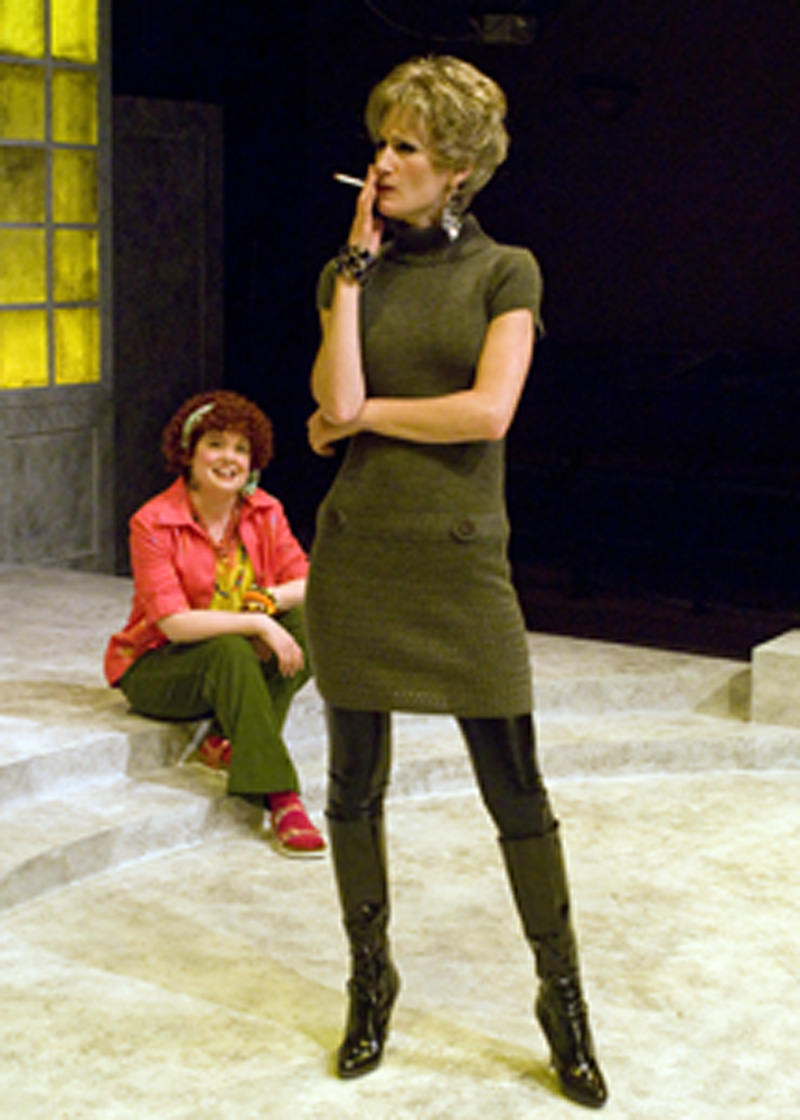Based on C.S. Lewis’ little-known 1940s Christian fantasia, this benign adaptation is Taproot’s first home-stage production since last fall’s arson. The restored theater is now in great shape, and you’d better be, too, to keep up with the play’s fast-paced, lopsided theological “dialogues.” The Great Divorce is an innocuous, if somewhat fundamentalist, Divine Comedy of Lewis-ian proselytizing.
Amid the shadows and fog of Grey Town, passengers wait at a desolate bus stop, observed by the Lewis character (ably played by David Dorrian). Where is this queue of drab grumps headed? Either heaven or hell; but first they have to leave their eerie purgatory behind. We and Lewis watch as the bus riders debate their destination. Earnest, clownishly dressed characters called “spirits” try to persuade the cynical, dingy-dressed “ghosts” to “come up to the mountain.”
Lewis also receives spiritual guidance from a beaming, benevolent, big-bearded chap (Nolan Palmer). Through a series of philosophical conversations and allegorical vignettes, he tries to persuade Lewis to relinquish his illusions of free will and reconcile with God.
Welcome to Narnia for adults. Beatific, bright-clad, incorruptible spirits are pitted against flawed, monochromatic ghosts who cling to their pain and egos, who selfishly decline—at first—the sales pitch for salvation. It’s not a fair fight.
First produced two years ago by New York’s Magis Theater Company, The Great Divorce is here directed by Scott Nolte, with a cast of 10 portraying two dozen characters. And to their credit, despite Lewis’ schematic moralism, the mini-conversion scenes are the play’s most enjoyable aspect. In one episode, an angelically perfect woman (the radiantly open-faced Faith Russell) fails to close the deal with the ghost of her husband, who’s represented as a two-sided creature: one big, handsome, and wooden (Nathan Jeffrey), the other small and twisted (Sam Vance), both connected by a literal chain. She loves the small, crippled man, but only the big one will talk to her. It’s whimsical and symbolic, a playful take on timeless themes.
Most of these soul battles are staged in a faux-marble pavilion that looks appropriate for matters of the afterlife. Its mullioned windowpanes glow magenta and orange during the contests, and the actors are worthy of our attention. As for Lewis’ spiritual agenda, that depends on your pew.








